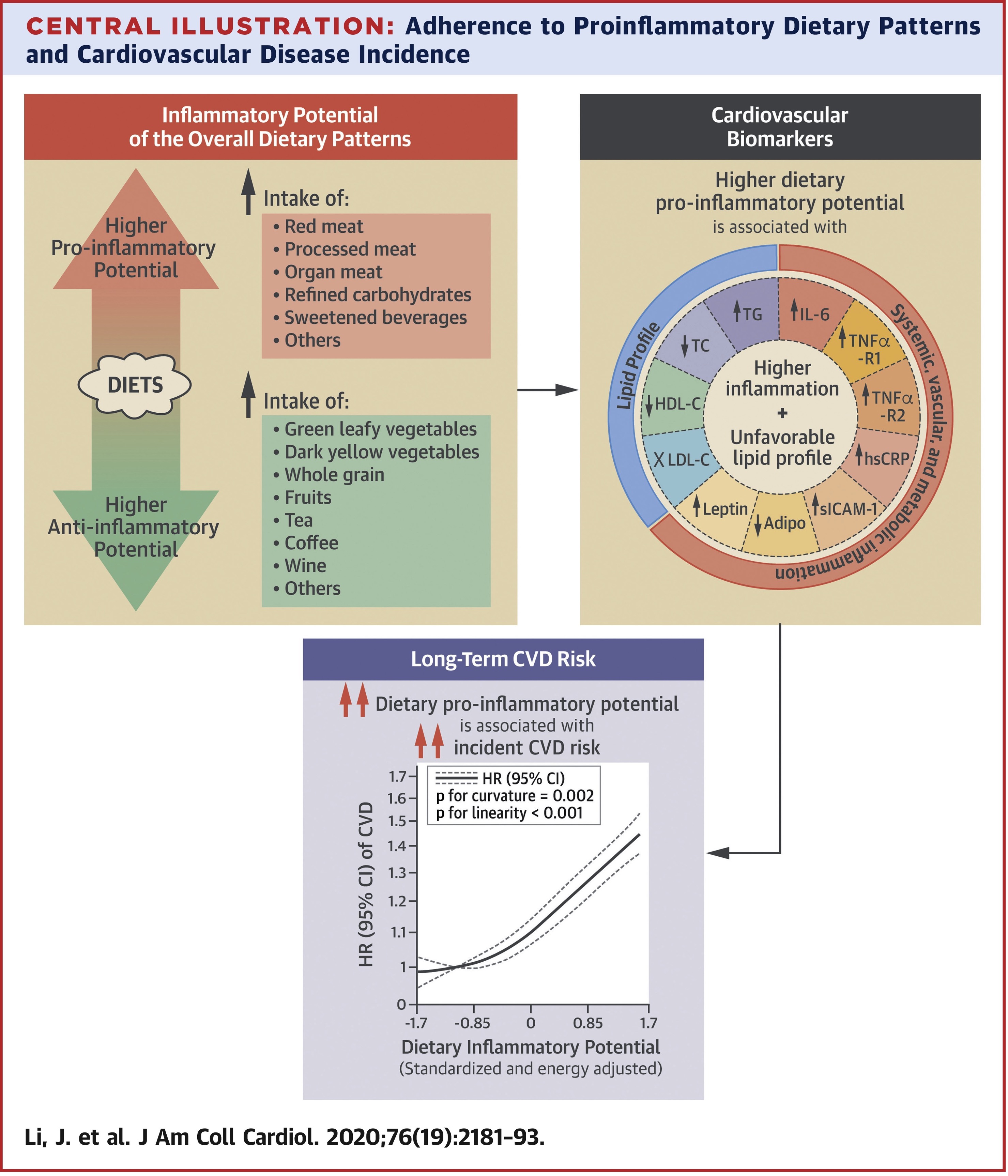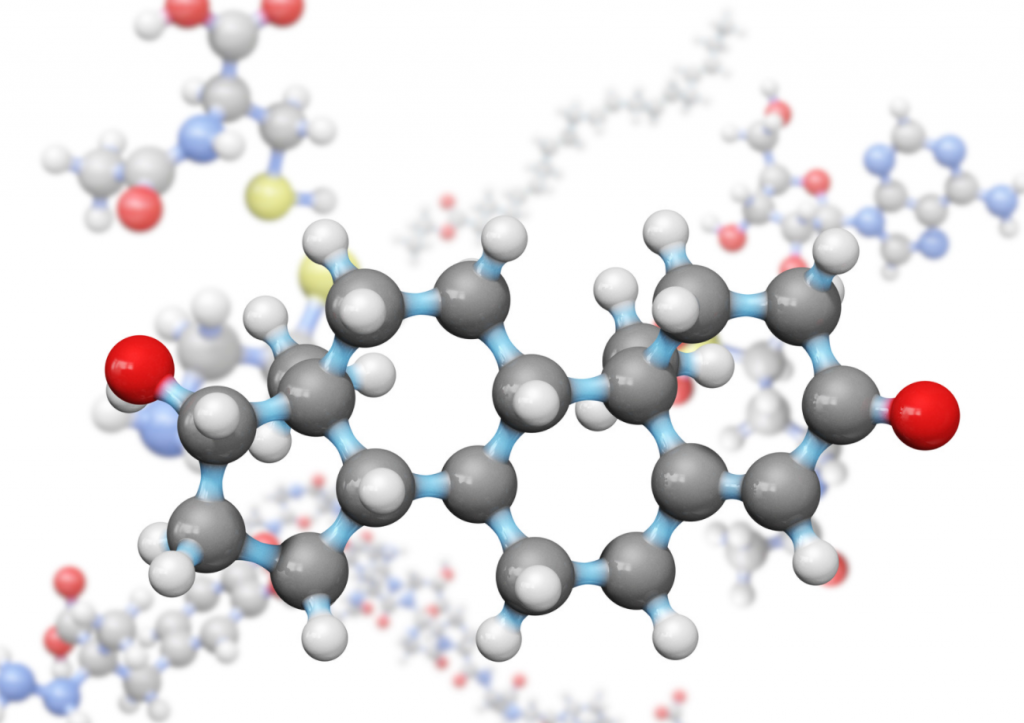Aging progressively decreases testosterone levels by about 1% per year after the age of 30 or 40. How does it interact with an individual’s diet?
A new study published in the Journal of the American Urological Association concludes that men who follow a more proinflammatory diet appear to have a higher risk of testosterone deficiency, indicating the important role of a healthy diet in male reproductive health.
Alejandro Monzó – Neolife Nutrition and Nursing Unit
Industrial food consumption and sedentary lifestyles in the spotlight
.
Testosterone is an androgen or steroid hormone. It is produced mainly in the testes and ovaries (1). In men, it is the main male sex hormone and also an anabolic steroid. Testosterone fulfills different functions, which help to maintain:
-
- Bone density
- The distribution of fat
- Muscle mass and strength
- Facial and body hair
- The production of red blood cells
- Sex drive and sperm production
Hypogonadism impairs the ability to produce normal amounts of testosterone due to a problem with the testes or with the pituitary gland that controls the testes (1). Hormone replacement therapy with testosterone, administered as injections, tablets, patches or gels, may improve the symptoms of low testosterone in men, a very common treatment at Neolife
Nowadays, the average testosterone level in men has reduced significantly in recent decades. Although loss of testosterone is common as men age, scientific evidence shows that it is often associated with diabetes, abdominal obesity, sexual dysfunction, depression, and other adverse conditions (2).
According to new research published in the Journal of the American Urological Associationa diet rich in proinflammatory foods, including foods that contain refined carbohydrates and sugar, as well as polyunsaturated fats, may lead to testosterone deficiency in men (3). This study investigated the link between dietary inflammatory index and sex hormones in a representative sample of nearly 4,200 adult men. They provided a 24-hour dietary intake history and underwent sex hormone tests. For men on the more proinflammatory diet, the odds of testosterone deficiency were approximately 30% higher compared to men on the more anti-inflammatory diet.
The authors state that the study’s findings do not prove causality; however, they support previous research suggesting that this type of diet may contribute to testosterone deficits, in addition to other potential health problems. Men with low testosterone levels have higher levels of proinflammatory cytokines, small proteins released by cells during injury or infection or in response to inflammatory factors in the environment.
A proinflammatory diet is generally characterized by the consumption of refined carbohydrates, processed meats, trans fats, poor quality oils, and sugary drinks. In short, foods belonging to the fast food group, industrial and ultra-processed foods, all of them rich in fat, sugar, and salt. In an antioxidant diet, there is more consumption of vegetables, fruits, legumes, and nuts. New research published in the Journal of the American College of Cardiology shows that certain dietary patterns have the potential to significantly increase cardiovascular risk, so that appropriate intervention at this point may result in an effective disease prevention strategy (4, 5) (Figure 1).

Figure 1. Proinflammatory diet vs. anti-inflammatory diet: potential effects (5).
No isolated food ‘per se’ induces an increase in testosterone. However, an unhealthy proinflammatory diet, especially due to its effect on obesity and increased cardiovascular risk, may produce a decrease in testosterone(6). There is increasing evidence that poor eating habits are associated with a variety of chronic diseases, such as cardiovascular disease, type 2 diabetes or obesity, which is key to understanding their interaction with declining testosterone levels.
Therefore, a healthy, balanced, antioxidant diet may have a beneficial effect on testosterone levels. Intakes of complex carbohydrates, fiber, healthy fats, vitamins, and minerals, such as those mentioned below, have demonstrated the important role of a healthy diet in men’s health (6, 7, 8):
- A high consumption of vegetables, especially cruciferous vegetables, such as broccoli, Brussels sprouts, cauliflower, in addition to helping prevent cancer, favor the increase of testosterone levels.
- Restrictive diets, especially when it comes to fat, may also reduce serum testosterone levels in men. Cholesterol is necessary for the production of testosterone, so consuming natural fats, from quality meats, fish and eggs, nuts, extra virgin olive oil, coconut and avocado, may be a suitable option.
- In particular, minerals such as zinc, selenium, and magnesium play a relevant role in optimizing testosterone levels and fertility. Adequate consumption of nuts, liver, eggs, dark chocolate, seafood, and crustaceans may also be of interest.
Finally, there are several factors associated with a decrease in testosterone, such as advanced age, environmental pollution, lifestyle, the presence of structural alterations in the reproductive system, diseases such as obesity, and an unhealthy diet. At Neolife, our medical-nutritional team works with each individual and particular case; this is where dietary-nutritional advice is of special interest due to its great ability to prevent disease and potentially improve testosterone levels.
BIBLIOGRAFÍA
(1) Mayo Clinic. (2021). “Sexual health: testosterone”. URL: https://www.mayoclinic.org/healthy-lifestyle/sexual-health/in-depth/testosterone-therapy/art-20045728
(2) Kalvaitis, K. (2007). “Generational decline in testosterone levels observed”. Endocrinetoday. Healio. URL: https://www.healio.com/news/endocrinology/20120325/generational-decline-in-testosterone-levels-observed
(3) Zhang, C. y otros. (2021). “The Association between dietary inflammatory indcex and sex hormones among men in the United States”. Vol. 206, 1-7. American Urological Association. URL: https://www.auajournals.org/doi/10.1097/JU.0000000000001703
(4) De Luis Román, D.A. Bellido Guerrero, D. García Luna, P.P. Olivera Fuster, G. (2017). “Dietoterapia, nutrición clínica y metabolismo”. Tercera edición. Sociedad Española de Endocrinología y Nutrición. Grupo Aula Médica, S.L. Madrid, España.
(5) Li, J. y otros. (2020). “Dietary Inflammatory potential and Risk of cardiovascular disease among men and women in the U.S.”. Journal of the American College of Cardiology. Vol. 76 (19). URL:https://www.sciencedirect.com/science/article/abs/pii/S0735109720371904?via%3Dihub
(6) Camarero, A. (2019). “La alimentación insana puede producir un descenso de testosterona”. El Confidencial: Alimente. URL: https://www.alimente.elconfidencial.com/bienestar/2019-12-17/dieta-insana-descenso-testosterona_2379316/
(7) Guadalupe G-R, L. y otros. (2018). “Nutrición y fertilidad”. Nutrición hospitalaria. Vol. 35(6): 7-10. URL: https://scielo.isciii.es/pdf/nh/v35nspe6/1699-5198-nh-35-nspe6-00007.pdf
(8) Vázquez, M. (2013). “Aumenta tus niveles de testosterona, de manera natural”. Fitness Revolucionario. URL: https://www.fitnessrevolucionario.com/2013/05/19/aumenta-tus-niveles-de-testosterona-de-manera-natural-parte-ii/

